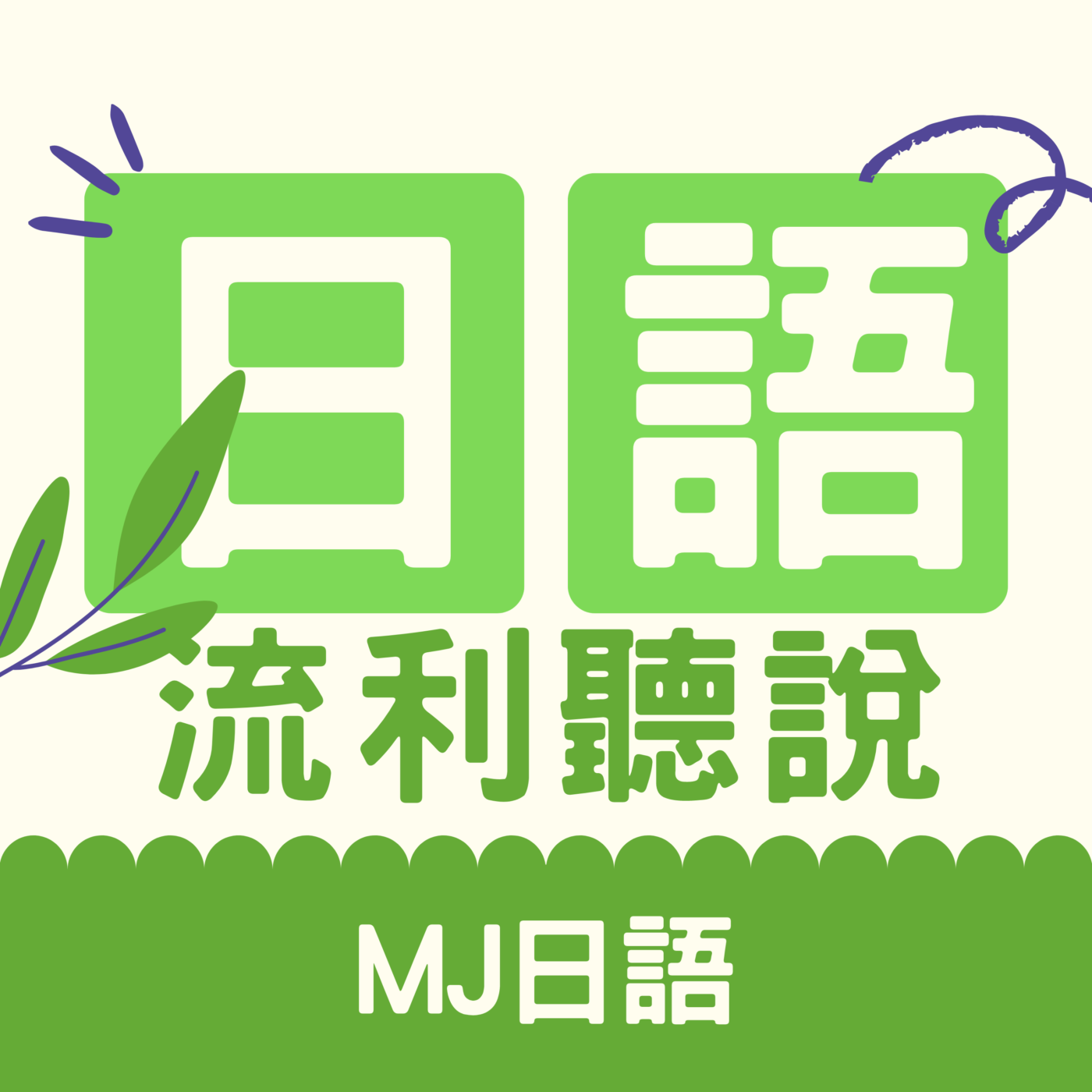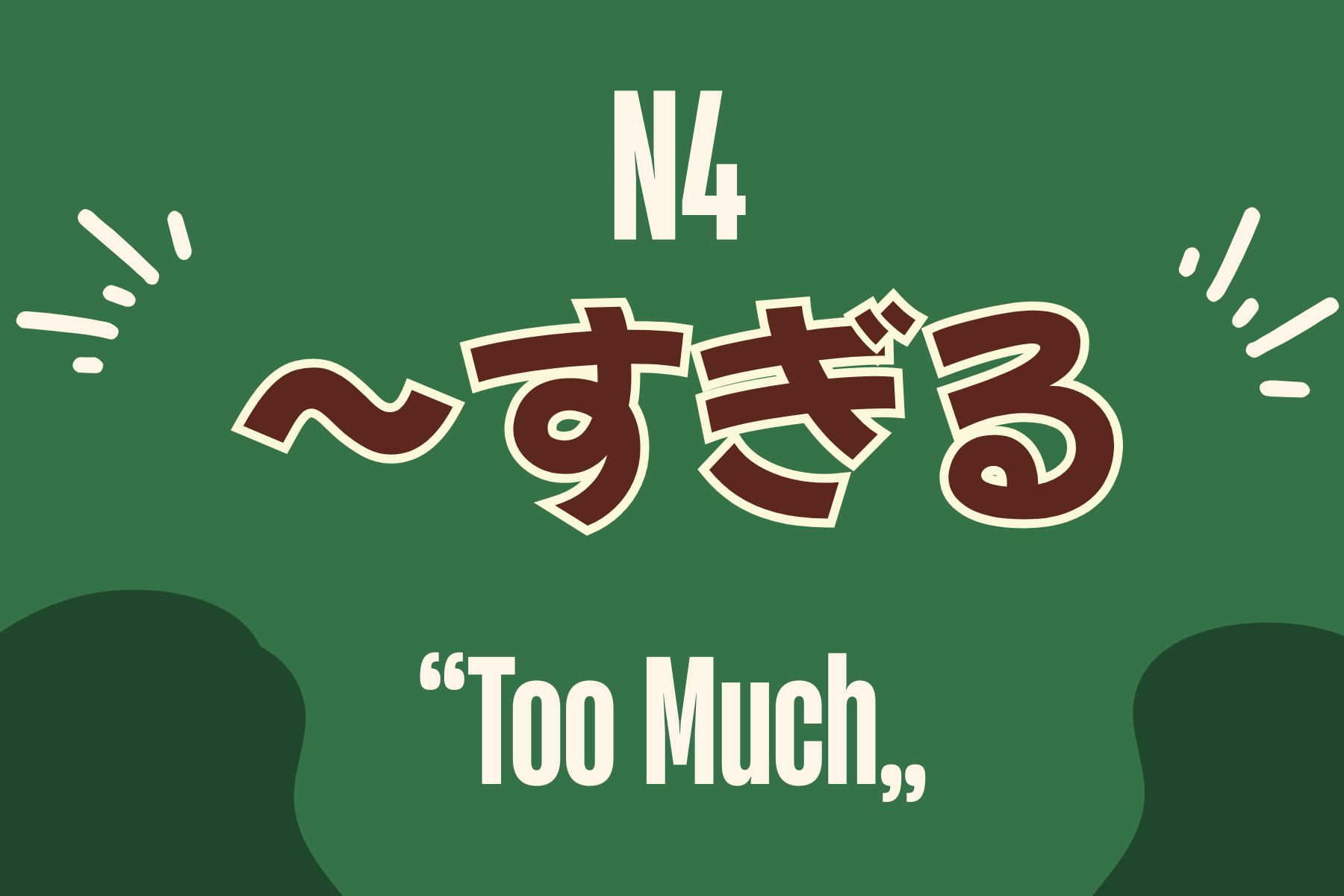今天要介紹的是一個你一定會在日常對話中超常用到的文法:「~すぎる」!當你想說「太熱了」、「吃太多了」、「太可愛了」時,就是用這個句型!本篇文章會教你怎麼用「~すぎる」來表達「過度」、「太~了」的意思,簡單實用又好記!
In this post, you’ll learn how to use the super useful Japanese grammar “~すぎる,” which means “too much” or “excessively.” You can use it to say things like “It’s too hot,” “I ate too much,” or “She’s too cute!” Let’s learn how to use it naturally!
📘 文型解說|Grammar Breakdown
| 文法結構 | 說明 | Explanation |
|---|---|---|
| 動詞ます形(去ます)+すぎる | 做得太過頭 | Verb stem + すぎる (Did too much of…) |
| い形容詞去い+すぎる | 太~(形容詞) | i-adjective (drop い) + すぎる |
| な形容詞+すぎる | 太~(形容詞) | na-adjective + すぎる |
🧠 基本意思(Basic Meaning)
- 「~すぎる」表示某個行為或狀態「超過適當範圍」,可以翻成「太~了」、「~過頭了」、「~太多」。
- “~すぎる” means something is “too much” or “excessive.” You can use it with verbs and adjectives to show that something goes beyond normal.
🔤 常見搭配詞(Common Combinations)
| 日文 | 中文 | 英文 |
|---|---|---|
| 食べすぎる | 吃太多 | eat too much |
| 忙しすぎる | 太忙了 | too busy |
| 暑すぎる | 太熱了 | too hot |
| 簡単すぎる | 太簡單了 | too easy |
| 静かすぎる | 太安靜了 | too quiet |
💬 例句練習|Practice Sentences
| 日文 | 中文 | English |
|---|---|---|
| 昨日、食べすぎてお腹が痛い。 | 昨天吃太多,肚子痛。 | I ate too much yesterday and now my stomach hurts. |
| このカレーは辛すぎるよ! | 這個咖哩太辣了啦! | This curry is way too spicy! |
| 彼は真面目すぎて、逆に心配だ。 | 他太認真了,反而有點讓人擔心。 | He’s too serious—it’s actually a bit worrying. |
| この部屋、静かすぎて落ち着かない。 | 這房間太安靜了讓人不自在。 | This room is too quiet—I can’t relax. |
| 暑すぎて外に出たくない。 | 太熱了,我根本不想出門。 | It’s too hot, I don’t want to go outside. |
✅ 文法重點小結|Quick Grammar Recap
- 「~すぎる」是用來表達「太~了」的實用句型,可以接動詞和形容詞。
- 要注意形容詞和動詞的接法不同,例如「食べすぎる」、「暑すぎる」、「静かすぎる」。
- 日常生活常常會用到這個句型,學起來超實用!
“~すぎる” is an essential grammar for expressing “too much” in Japanese. Just remember how to attach it properly to verbs and adjectives—and you’ll sound much more natural in everyday conversation!



-3-120x68.png)
